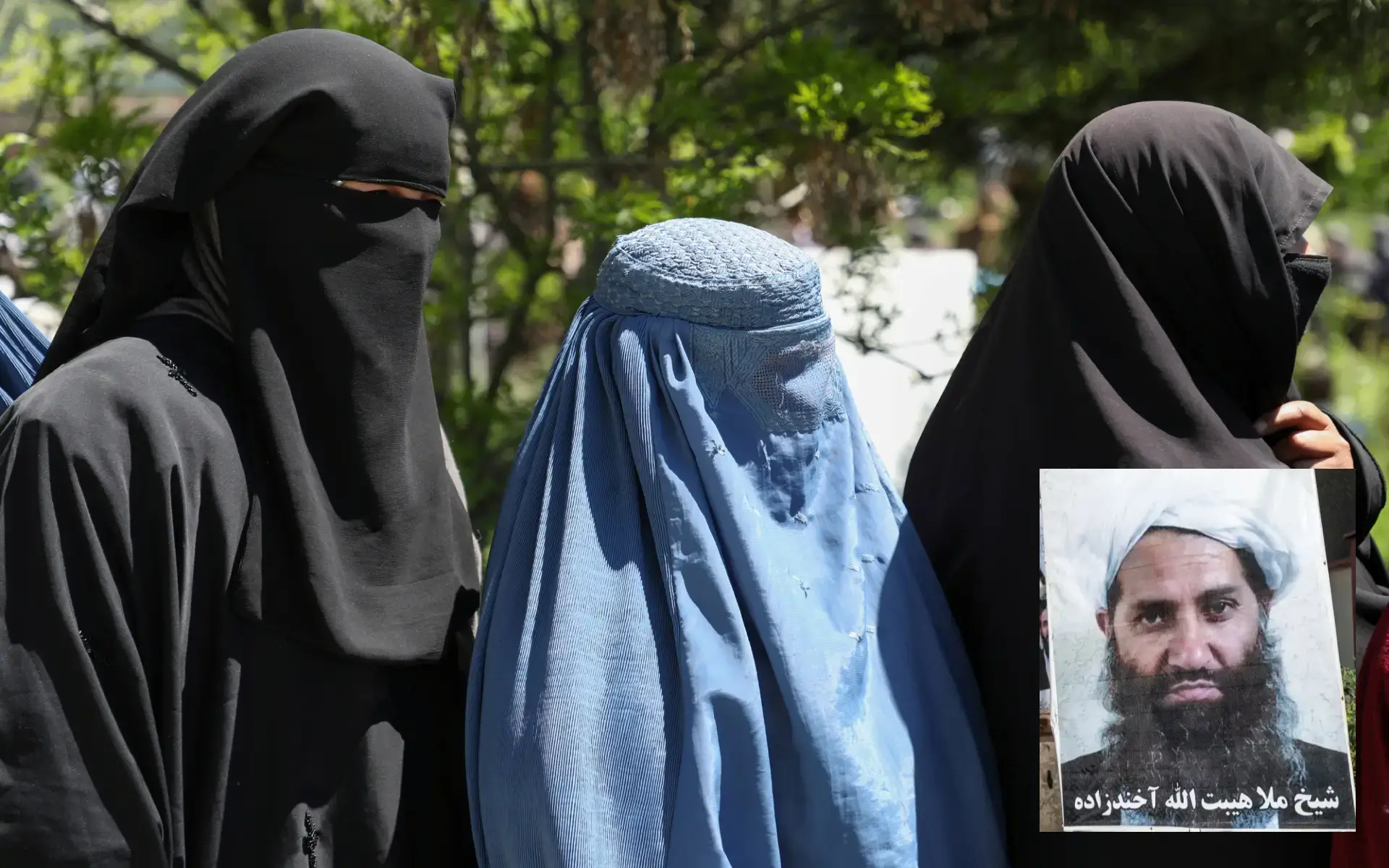Taliban’s elusive leader, Mullah Hibatullah Akhundzada, has sparked fear and outrage by implying that the extremist Islamist faction would resume public stoning and flogging of women, as per a recent report.
Akhundzada conveyed the chilling message meant for Western nations over the weekend via a voice message on state television.
“You label it as a breach of women’s rights when we mete out death by stoning,” he declared to state media, referenced by the Telegraph.
He further vowed to reinstate the punitive measures for adultery, including public flogging and stoning of women.
The rights of women in Afghanistan have been systematically eroded since the Taliban’s takeover in 2021.
The Taliban assumed power following the United States’ catastrophic exit from the Middle Eastern nation in August 2021. The disorderly departure had immediately sparked concerns about the rapid deterioration of women’s rights in the country.
- Ex-General recounts opposition to disastrous Afghanistan pullout, laments Biden ‘strategic failure’ in Hill testimony
- Full gender equality could take 300 years as ‘global backlash against women’s rights’ takes hold: UN chief
- How the US pull-out from Kabul hurt women most
Akhundzada unabashedly defended his stance, arguing that their actions, although contrary to democratic values, were a representation of God’s will.
“We both assert to protect human rights – we as God’s emissary and you as the devil’s,” Akhundzada stated.
He also criticized the international community for advocating for women’s rights, which he believes contradict the Sharia law.
Akhundzada committed to continuing the fight against the Westerners, stating, “It did not conclude [when you left]. It implies we would now just sit back and enjoy tea. We will implement Sharia in this land.”
The harsh decree has elicited strong criticism from human rights groups, lambasting the international community for its lack of robust support for Afghan women.
READ ALSO: Israeli Supreme Court’s Decision to Halt the Removal of Palestinians in East Jerusalem
Safia Arefi, the head of the Afghan human rights group Women’s Window of Hope, warned that Akhundzada’s announcement would push Afghan women back into the brutal era of the 1990s.
“With the Taliban leader’s declaration, a new phase of private punishments has begun, and Afghan women are experiencing the profound depths of isolation,” Arefi told the Guardian.
The international community’s silence in the face of these infringements of women’s rights is deeply concerning, according to Sahar Fetrat, an Afghan researcher at Human Rights Watch.
“Through Afghan women’s bodies, the Taliban impose and assert moral and social orders. We should all be warned that if not stopped, more and more will come,” she warned.
Akhundzada, who has never been seen in public, typically communicates through ominous voice messages. Few images of him exist.
In the past, the Taliban has forbidden women and girls from parks, gyms, universities, non-governmental jobs, and the United Nations for allegedly not wearing appropriate hijab or violating gender segregation rules.
